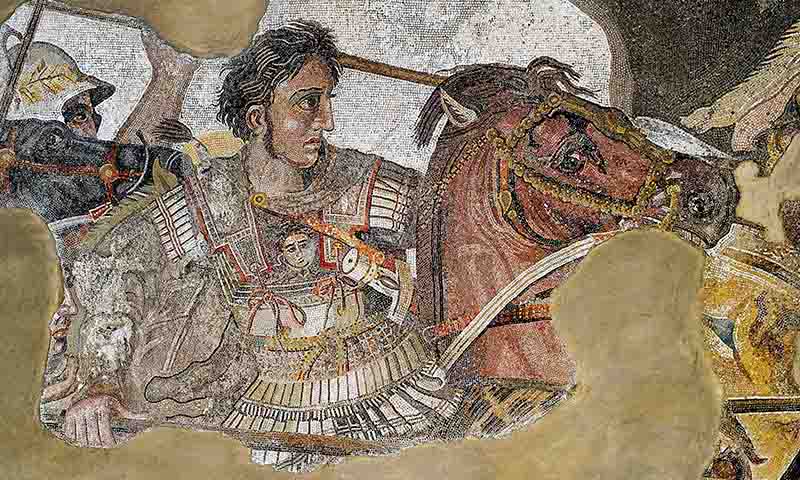The Greek Rule of the Jews
Carousel of images for this Bible Exhibit
Listen to this Bible Exhibit
In 334 BC, Alexander the Great set out to conquer the Persian Empire and spread the Greek culture and language to everyone. After the battle of Issus near the Turkey-Syrian border in 333 BC, Alexander marched south through Judea and peacefully entered Jerusalem. This marked the beginning of the Greek or Hellenistic rule of the Jews, which would last until the Maccabean Revolt in 164 BC.
Alexander treated the Jewish people respectfully and allowed them to continue practicing their religion and observing their customs. He is said to have been impressed by the wisdom of Jewish scholars and may have been influenced by Jewish ideas during his conquests. His rule over the Jewish people from 334 to 323 BC was relatively short, but it had significant implications for God’s people.
After Alexander died in 323 BC, his empire was divided among his generals, and the region of Judea came under the control of a Macedonian general named Ptolemy I Soter. He had gained control of Egypt almost up to Damascus, including Judea. The Jewish people enjoyed a measure of autonomy under the Ptolemaic Empire, with its capital in Alexandria. Both the Jews living in Judea and the large population now living in Alexandria began to adopt the Greek culture and language called Hellenization. This initiated the process of translating the Old Testament or Hebrew Scriptures into Greek which became known as the Septuagint.
In 198 BC, based in Syria, the Seleucid Empire to the north gained control over Judea. They aggressively pushed for Hellenization and clashed violently with the Jews over religion. Jews were forbidden to the point of death from practicing their worship of God and their traditional way of life. The temple in Jerusalem was turned into a pagan shrine, and persecution became commonplace.
Tensions between the Seleucids and the Jewish people led to a violent uprising. The Maccabean Revolt, which took place from 167 to 164 BC, was fueled by the forced Hellenization by the Seleucid rulers. The revolt succeeded, and the Jewish people regained their independence under their Hasmonean dynasty. The Greek rule of the Jews was a period of adopting and resisting the Greek culture and language, ending with a revolution to maintain their traditions and identity.








